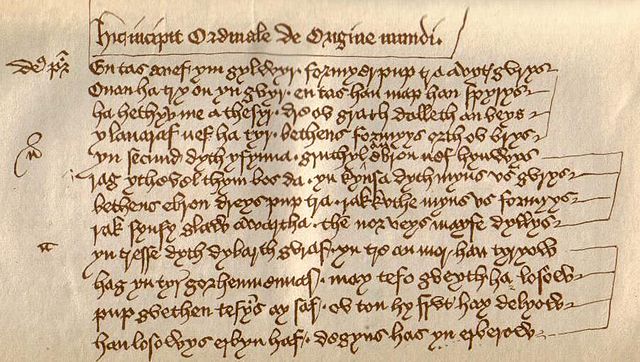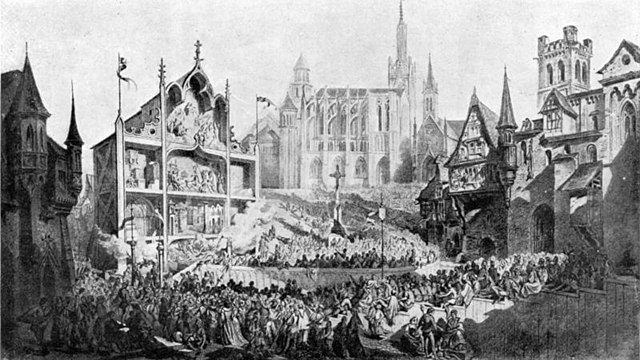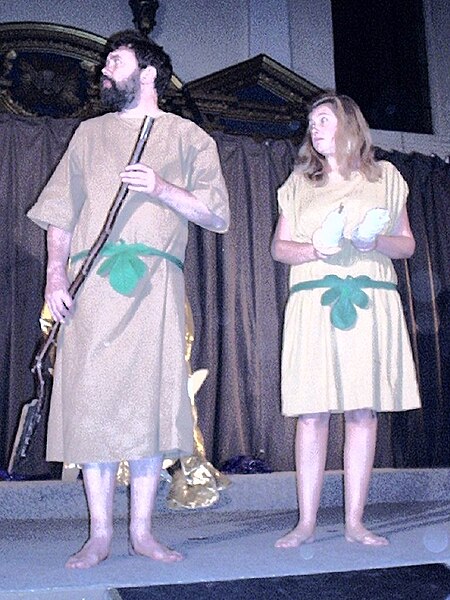The Ordinalia are three medieval mystery plays dating to the late fourteenth century, written primarily in Middle Cornish, with stage directions in Latin. The three plays are Origo Mundi, Passio Christi and Resurrexio Domini. The metres of these plays are various arrangements of seven- and four-syllabled lines. Ordinalia means "prompt" or "service book".
The opening verses of Origo Mundi, the first play of the Ordinalia
Mystery plays and miracle plays are among the earliest formally developed plays in medieval Europe. Medieval mystery plays focused on the representation of Bible stories in churches as tableaux with accompanying antiphonal song. They told of subjects such as the Creation, Adam and Eve, the murder of Abel, and the Last Judgment. Often they were performed together in cycles which could last for days. The name derives from mystery used in its sense of miracle, but an occasionally quoted derivation is from ministerium, meaning craft, and so the 'mysteries' or plays performed by the craft guilds.
Depiction of a performance of the Mystery Play of Saint Clement in Metz during the Middle Ages.
Mystery play, Flanders, 15th century
Two Players of St. Peter portraying Adam and Eve




